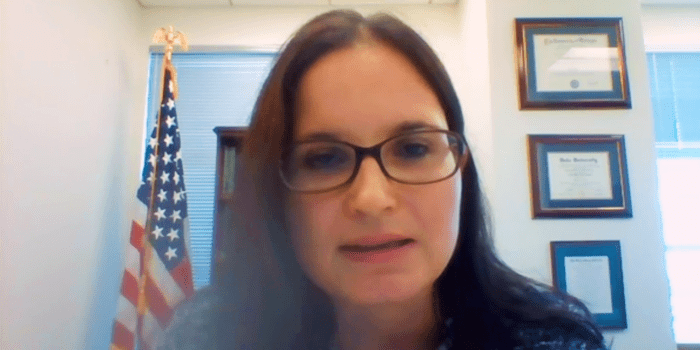(Ken Silva, Headline USA) Judge Aileen Cannon is allowing the Justice Department to keep evidence about the assassination attempt against Donald Trump secret on the grounds that it could harm U.S> national security, she said in a Friday order.
Judge Cannon’s ruling came in response to a motion from the DOJ to keep classified evidence hidden in the case of Ryan Routh, who allegedly tried killing Trump at his Florida golf course last September. Routh wasn’t allowed to see the classified evidence at issue, nor was he allowed to even see the DOJ’s motion or to attend a secret hearing on the matter.
Judge Cannon didn’t elaborate in her ruling, saying simply that disclosing classified information in Routh’s case “could cause serious damage or exceptionally grave damages to the national security of the United States.”
🚨NEW: Judge Aileen Cannon has allowed the DOJ to keep evidence in alleged would-be Trump assassin Ryan Routh's case SECRET on the grounds that "its disclosure could cause serious damage or exceptionally grave damages to the national security of the United States."
Not even Routh… https://t.co/qGtP9EXN2m pic.twitter.com/wPsPVrJRw8— Ken Silva (@JD_Cashless) August 1, 2025
The classified evidence in Routh’s case could relate to his 2022 trip to Ukraine, where he attempted to recruit volunteers to fight in the U.S. proxy war against Russia. Routh said in his 2023 self-published book that his “best partner” in Ukraine was an Israeli, and the DOJ later accused him of trying to buy a rocket launcher from a purported Ukrainian as part of his plot. In addition, Routh had been communicating with Afghan commandos living illegally in Iran, as well as other Afghans in Mexico.
The DOJ’s secret motion and Judge Cannon’s Friday order are made pursuant to the Classified Information Procedures Act, which allows the U.S. government to keep state secrets just that: secret—even if it negatively impacts the rights of a defendant.
Indeed, Section 4 of the CIPA “authorizes federal district courts to deny, or otherwise restrict, discovery of classified documents and information,” according to the DOJ. Instead of having to provide a defendant with access to the actual classified evidence, the DOJ is allowed to summarize such evidence under Section 4 of CIPA.
In December, the DOJ filed a similar motion to keep classified information secret in the case of Asif Merchant, the Pakistani man who allegedly tried hiring two hitmen in an Iranian-sponsored assassination plot against Trump.
🚨IMPORANT: The DOJ has signaled that it will exercise its "state secrets privilege" to suppress evidence in the case of Asif Merchant, the the Pakistani who tried hiring 2 undercover FBI agents in the so-called Iran assassination plot against Donald Trump.
The state-secrets… pic.twitter.com/AlVBz1ZI5e
— Ken Silva (@JD_Cashless) December 20, 2024
As Headline USA has detailed, the notion that Iran conspired to assassinate Trump is highly dubious. In the Merchant case, the two hitmen he attempted to hire were undercover FBI agents introduced to him by one of their informants. Merchant appears to have been an unwitting dupe in an FBI sting operation.
However, the evidence that would prove whether Merchant was a legitimate assassin or an FBI patsy may never see the light of day, thanks to CIPA.
Ken Silva is the editor of Headline USA. Follow him at x.com/jd_cashless.

